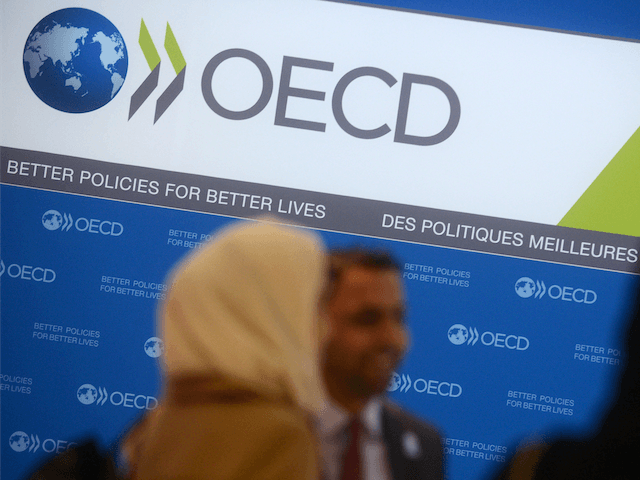A pro-globalisation French think tank that published an attack on the economic case for Brexit yesterday buried the fact that, according to their own predictions, Brexit would also drastically cut migration to the tens of thousands.
The report, by the Organisation for Economic Cooperation and Development (OECD), was overwhelming negative, but hidden in the data was the revelation that quitting the EU would cut net migration to the UK by 84,000 a year from 2019 onwards.
The OECD represents 34 wealthy countries and pushed a globalisation agenda, or what it describes as, “promot[ing] economic co-operation”, and, “stimulat[ing] economic progress and world trade”.
The authors, therefore, did not view a fall in migration as a good thing, and failed to publicise the significant and sizeable drop in their press releases. They mentioned it only in passing in one, in relation to the negative effect stemming free movement could have on economic growth.
The only use of the word “migration” came in the line: “The longer-term effects of weaker technical progress, migration and capital caused by Brexit are projected [to negatively effect economic growth to different degrees]”.
The BBC followed suit, only mentioning the word “immigration” at the bottom of their article, in the 19th paragraph, and also only in passing in relation to economic growth.
Negative claims, therefore, dominated the headlines.
“OECD issues damning report on effect of Brexit”, said the Financial Times; “Britain would pay a “Brexit tax” outside the EU – OECD”, said Reuters; “Brexit would cause ‘tax-like’ burden on UK incomes, OECD warns”, said the Independent.
The headlines were based on claims from the OECD, that: “Britons will be paying a heavy ‘Brexit tax’ for many years if UK leaves EU”. According to their report, Brexit would result in 3% lower economic growth by 2020, rising to 5% in 2030, costing households on average £3,200.
However, as Matthew Sinclair points out in the Telegraph, these doomsday predictions are based on the assumption that the UK will utterly fail to secure a free trade deal with the EU in the short-term. And if we do so in the long-term, they assume we will win no trade agreements with the wider world.
Mr. Sinclair dubs the report “scaremongering”, as the authors are unreasonably, “assuming that the UK, which has historically taken the most free trade position of any major economy, will instead take the least free trade position of any major economy”.

COMMENTS
Please let us know if you're having issues with commenting.